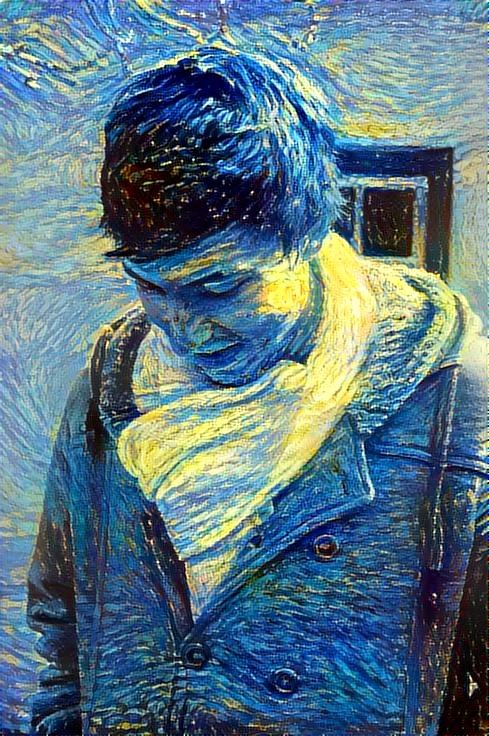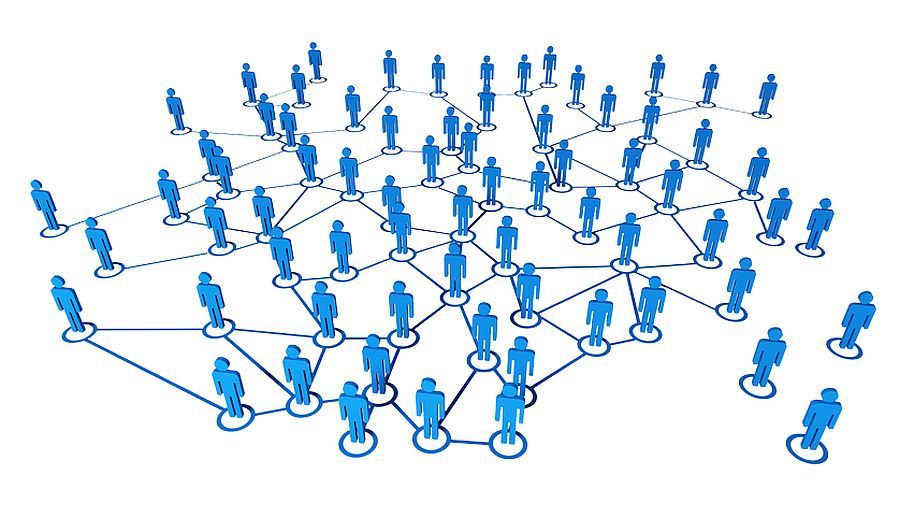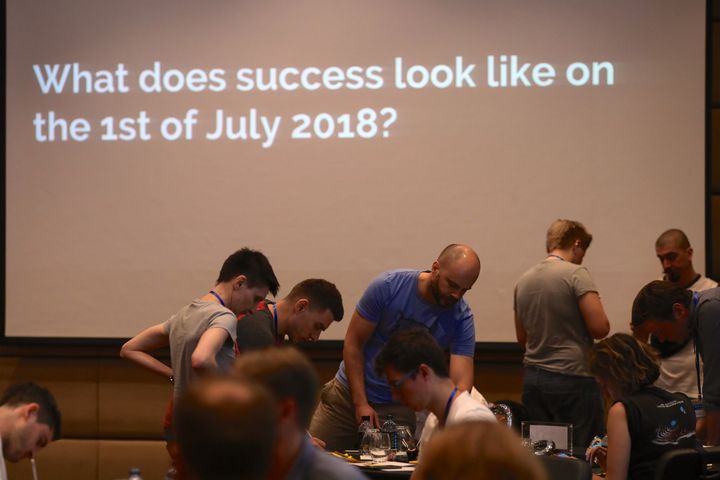"The Decentralized Autonomous Organization, that's the killer app" — Andreas Antonopoulos
What does moving toward a DAO mean for you as a contributor to Status, what are the different ways to get involved and how does what you do at Status change?
The problem with writing about new stuff is that it's very hard not to use jargon which ends up intimidating everyone and distracting them from the real intention around experimenting with different kinds of services, organisation, and speech.
I don't want to rehash the history of The DAO for you, and I don't want to make a rhetorical argument about how broken governance is in the world; whether that refers to corporations and regulation, or to the various flavours of state-based government practiced across the world today.
Much like language, the systems of governance we agree to abide by are defined by the way they are used by real people. Using just 12 words, Bitcoin can give you immediate access to value which allows you to transact in fundamentally different ways. With a more generalisable language, Ethereum gives you immediate access to state, which allows us to organise in ways which are far more useful in - and appropriate to - an increasingly complex world. Done well, it might be the foundation of whole new scales of social organisation.
Given the state of governance around the world, that seems like a fairly important thing to try as a group of people committed to building a more equitable web. This is not theory, because good governance has much more to do with praxis and regular, beneficial use.
Where Are We Now, Practically?
Currently, we have a multisig wallet in order to manage our ENS username contracts and the DApp with which it is associated. Every time a developer deploys a new version, or changes some parameter in the contract, at least one or two other key holders need to approve the transaction. This is one, very specific example, but being a DAO in practice means using these kind of multisig "circles" to distribute decision-making, while implementing the most effective and equitable incentive structure to promote active and constructive participation.
This means everyone will have the chance to contribute. While we're still way down in smart contract management, ideally each team will have members serving as key holders for one or more multisig wallets that are used to vote on things like OKRs and priorities, on other teams we choose to incubate, on what sort of content we put in Studio, on how we curate DApps in Status, how we hire people in peoplops, how we expense things and are compensated, and the many other things we have to decide on and name collectively as we build the future.
Yessin, Jarrad, Oskar and others are doing legal research around the best structure for key holders, and Barry, Richard, Rachel and others are experimenting with #multisig-evolution, which has been about understanding how we can make people within the organisation comfortable with running multi-signature wallets locally, interacting with hardware wallets or Status itself, and confirming basic changes to contracts in more distributed ways.
Using multisigs is a slow and laborious process, and is prone to error, or delays between time zones, or just because people are busy with their day-to-day work and don't have time to plug in their Ledger and cast a vote. Evolving this structure into something that is smooth, seamless and easy to understand for anyone using Status is the long-term goal of that group, but actually managing our "name space" in ENS is the day-to-day work we do.
We figure out what we can build - and what we **actually need **- while using the tools that exist currently to do genuinely meaningful things like protecting name spaces (!!) on the networks we are building. For now, it's these kind of technical and granular decisions to do primarily with the state, logic and the capabilities of smart contracts which constitute our "experiments with governance at the speed of software", but the possibilities really are endless.
What Can I Do?
The legal research and #multisig-evolution are only a small part of building a truly distributed and autonomous organisation, though. Oskar wrote a fantastic post on what sort of metrics we need to look at when encouraging contributions and the specific, practical steps we can take to build out a framework that can pull this all together and get people playing with new and different modes of organisation as we iterate over governance models at the speed of software.
Having open governance structures like the multisig circles above is not quite enough though: they need to be implemented with sufficiently robust incentive structures that encourage active and constructive participation. So, along with skin in the game experiments we are playing, we should set up incentivised demos for people to experiment with their own multisig wallets in groups of 3-8, so that we can all begin to practice better collective decision making with the tools currently available.
Practicing how to use the technology is the best way to prepare for experimenting with more impactful organisational decisions than just defining which version of an ENS Name Registry to point at. How we make those decisions, and exactly what kinds of decisions they are will be defined by how we use the current tools, the deficiencies and problems we find, and the iterations we can create after understanding actual organisational pain points that are worth solving.
Begin At The Beginning
Basically, we start with a multisig wallet that can manage ENS and the other contracts we deploy on Mainnet, and then extend that into decisions about how we handle liquid pledging for core contributors, and how we respond (with incentives) to votes on our OKRs and priorities. Voting on wider organisational decisions requires a DAO, though figuring out exactly the scope of that DAO is an iterative, rather than declarative, process.
So, help us solve problems! This is a great opportunity to grab your buddy, find people outside the team you work on in #multisig-evolution, and get to know them better through actually doing stuff together and figuring it out collaboratively. Let's do some user research on ourselves...
The best channel to join right now is #279-snt-voting-dapp, where Graeme, Barry, Ricardo and Richard are building a DApp that can be used easily in the real world; and then help the QA team try and break it before we release anything. Get used to and comfortable with voting on things which are relevant to you and tell us how to make it more simple, usable and effective so that voting becomes second nature, rather than a big mental effort.
Most importantly, ask "stupid" questions in #status-dao! There's no shame in not understanding how this is all meant to work. I could link to hundred different articles, but no-one really does, so just dive in and participate, because that's how real governance systems are actually built - by motivated and passionate people who come together to figure out a common set of problems and build the tools most suited to solving them.
Once you've conquered voting, head deeper into the rabbit hole with topic democracy (i.e. enhancing direct democracy with delegation systems and cool incentives) and liquid pledging (i.e. a different way of funding contributions that aligns incentives better), all of which you can ask Ricardo about in #status-dao.
Such Future!
Figuring out how to build a truly distributed and autonomous organisation is an iterative process, not a declarative one. There is no formal ETA for this - it is on ongoing exploration, conducted together. Much like The Tao, it is happening right now, and will continue to happen.
Therefore, let's play with some multisig wallets, get people to experiment with skin in the game, try different incentives and user experience flows to encourage people to vote, and generally get used to what it means to build systems that require contributors rather than users.
To bear and not to own;
to act and not lay claim;
to do the work and let it go:
for just letting it go
is what makes it stay.





